Exclusive! Director Siva Sai Vardhan: Hello World was a show I’d initially written for two seasons
Geetha Subramanyam, Pelli Gola fame Siva Sai Vardhan tests new waters with ZEE5’s workplace drama Hello World
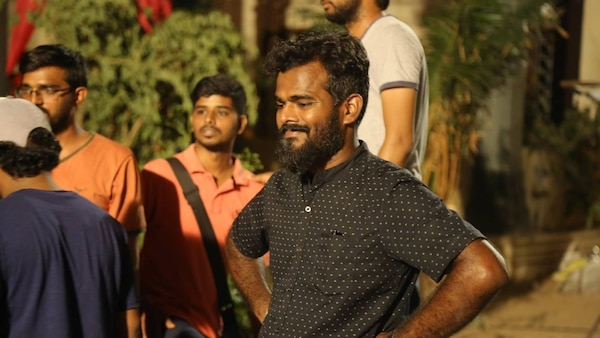
Last Updated: 07.59 AM, Sep 08, 2022
Writer, director of ZEE5’s latest show Hello World, Siva Sai Vardhan quit the IT sector after working for 15 years for a career in the entertainment industry. For him, making a corporate drama like Hello World was about going back in time to reminisce about his experiences in a similar world and give it a dramatic spin to weave it into a show. While he made more light-hearted series like Pelli Gola and Geetha Subramanyam earlier, Hello World pushed the envelope in his ability to generate drama in a story, touch upon a lot of real-life issues and still not lose out on the entertainment quotient. He shares his experiences in a chat with OTTPlay.com
Choosing to tell Hello World from the perspective of new joinees
My idea was to explore the stories of freshers entering a new world. I’ve been an IT employee myself with Tech Mahindra for over 15 years. I like to portray realistic moments on screen. When we tell the story of team leads or superiors, there’s every possibility that it might revolve around a character or two at best. However, when we choose to look at engineering graduates coming to an IT company, presuming that their lives are settled, I felt the plot presented an opportunity to showcase the corporate structure at various levels.
The challenges of dramatising a workplace drama
Initially, I wrote this story so that it could be told across two seasons. The first part was meant to focus on the training phase of the freshers and the other season was supposed to be a cubicle drama. I always enjoy the prospect of engaging a viewer with drama. When it was decided that we had to encapsulate the essence of two seasons into one, I felt there were difficulties in establishing all the characters. We had to find alternatives for completing their arcs and I did whatever I can, to the best of my capacity.
I had a lot of backstories for the characters. With the digital medium, there are limitations - there’s a time limit for every episode, character and how much you want to tell. With Sadaa’s character Prardhana, there was a flashback episode that substantiates her conversation with Rahul, where she tells him to go to the wedding of his ex. Whenever you see your ex getting married, you either go mad or end that chapter completely in your life. It was something that Prardhana implemented in her life, but we couldn’t show it on the screen.
Among all the characters, Prardhana and Rahul are close to my heart. Prardhana and Raghav’s characters also have a connection to the famous ‘moodu chepala katha’ in our culture. While Raghav is someone who’ll jump into something instantly, Prardhana bides her time and takes charge of a situation only when it’s necessary. However, above everything else that happens behind the screen, what’s most important is to engage a viewer and if I do that, I consider myself successful.
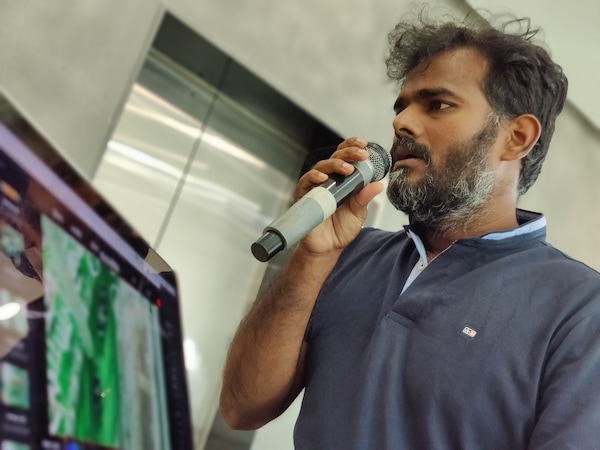
On the absence of corporate/workplace dramas in Telugu
One can’t pin it down to one reason; everything boils down to saleability. Filmmakers would’ve explored it had they got the right opportunity. Though there may be many software employees turned filmmakers in the industry, everyone approaches their stories from a different standpoint. Some prefer slice-of-life stories, and real-life incidents, some prefer drama and some choose a mainstream formula. Apart from Pelli Gola, in my career with Geetha Subramanyam too, I felt I would get a kick when I tell stories based on real incidents. It is all about individual perception, at the end of the day.
Casting Aryan Rajesh and Sadaa as the mentors to the joinees
My main idea was to cast actors whom one would genuinely listen to when they say something. I like Aryan Rajesh’s off-screen persona and his posture; he is a six-foot tall man who never loses his cool. He never talks much and keeps his discussions brief. When a man is of a few words, you would want to listen to him all the more. Similarly, with Sadaa, she has an authoritative presence that intrigues people. She is the strength of the story.
I didn’t want anything cinematic for either of the characters - be it their mannerism or body language. When I watched both of them perform for their first shot, there was a sense of relief; I got exactly what I had dreamt of and they surpassed my expectations. There was pressure on me to deliver a hit for Pink Elephant Pictures after a successful show and I was very satisfied with what I saw.
Ravi Varma as the grey-shaded Debashish - the intention and the execution
I must say Ravi Varma was our first choice for the role. I was a big fan of his work in Vennela; his intensity in the film is on a different level altogether and supersedes his all other performances. When I wrote Debashish, I didn’t want him to be the quintessential villain. When he wants a room for a meeting and tells Raghav about it, his tone is different because of his ego. He’s a flawed man who’s behaving in a certain way because of his past.
Had we opted for sync sound, the episodes would’ve turned out even better. I was blown away by Ravi Varma’s performance in the rushes for the scene where he warns Raghav. It was very challenging to replicate the same raw emotion in Debashish’s character dubbing. Ravi Varma is a dream for any director because he does his homework and is constantly trying to do better. There’s a lot of potential in him that’s waiting to be explored.
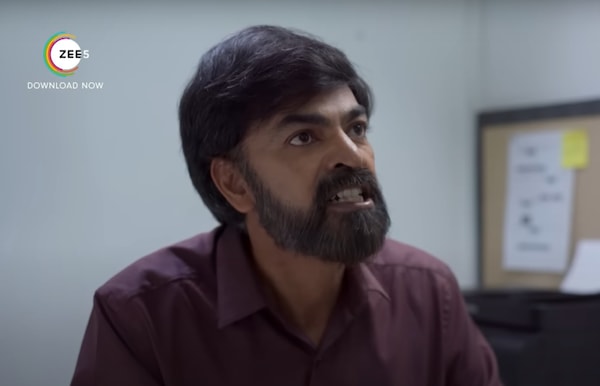
Addressing the ‘hustle culture’ and corporate burnout in Hello World
It’s something I genuinely experienced in real life, where we fail to recognise the world beyond our work. It scares me that people in their 30s are dying out of cardiac arrest. One of my favourite sequences in Hello World is the dialogue at a hospital where Raghav’s wife talks about the imbalance between our personal and professional lives. I believe this is a common feature mostly among Indians.
Whenever I worked abroad for projects, people didn’t work beyond 6 pm and it was a law for them. When you work beyond your stipulated time and push yourself so hard, what do you gain? It’s a situation I faced too. Through Raghav’s character, I wanted to remind people that they have a family to take care of, beyond their work. How will they manage if everything doesn’t go as per plan or if you’re not around anymore?
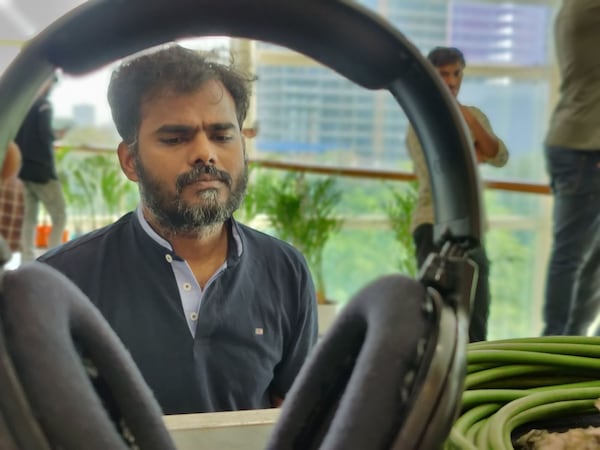
What’s the story he wishes to tell if Hello World is renewed for another season?
I would want to discuss the problems within the corporate sector on a deeper level. I know what I could’ve done better with my characters this season and want to use the opportunity to connect the dots. Being an IT person myself, I took a lot of liberties while making this show but I had to do them to simplify matters to audiences. I don’t want to dilute such aspects in the next season and take a deep dive into the corporate world beyond a project. There are good or bad people in this sector - there are only good or bad phases. I want to explore this with greater depth and say that this doesn’t apply only to the IT world.
The growing disinterest in IT jobs
Beyond this change, it’s also a case of demand and supply. There are too many people in the IT sector and unlike in the early 2000s, there’s no ‘awe factor’ that someone has managed to get a corporate job these days. Every second person has an IT job now and it’s not exciting to work for 12-18 hours anymore. There were people in the 1990s who worked amidst such challenges but their issues didn’t even get enough limelight. Now, there is a lot of option for people to diversify and the market opens us to a lot of opportunities. Parents no longer force their kids to take up such high-stress jobs and instead give them wings to chase their passion.
Reliving his personal experiences in the corporate sector through the show
When I quit the IT sector for a career in the entertainment industry, COVID-19 twisted every possible equation in my life. I had signed multiple projects and it made me start from zero all over again. The pain in Rahul’s character in Hello World is mine and if it has come out convincingly today, it’s for the same reason. Though I’ve known Nikhil Simha for long (during my Tamada Media days), I cast him in Hello World only after an audition and he did a fine job. I had the liberty to reject him if he didn’t suit the part.
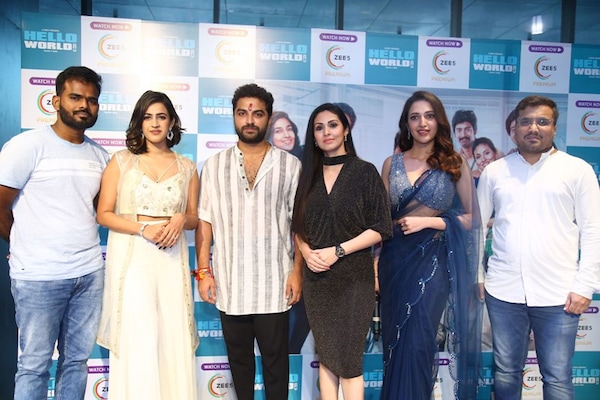
The association with Niharika Konidela, the producer
When I say Niharika is the pioneer in the Telugu digital space, it isn’t an exaggeration. She always strives to break new ground with her projects - be it Mad House, Oka Chinna Family Story (OCFS) or Hello World. She isn’t satisfied easily and is particular that the stories from her banner have a certain standard. OTT may be a business for many but she seeks respect through her work. She won’t say yes to any project until she believes it’ll add value to her banner. Having known her from close quarters, Niharika gives complete freedom to a director when she trusts them and never interferes with our decisions.
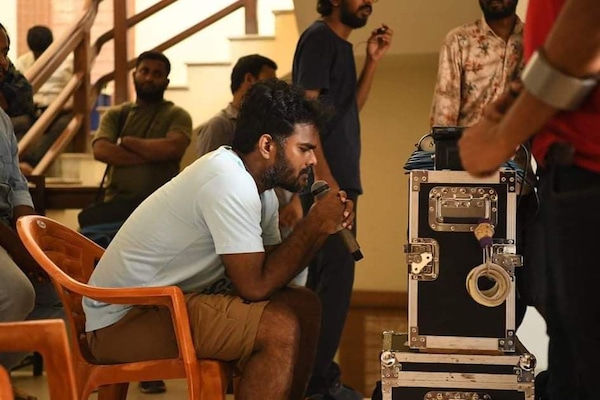
The gap between what audiences want and what they get from OTT content
Why is OCFS a big hit today? It’s because everyone from an auto driver to a housemaid to a middle-class family watches it. However, just because shows in one genre are working with audiences, you can’t keep pushing them one after the other. The genre will ultimately become a cliche by the time a new show is out. Beyond the cost, if the OTT platforms focus on content more, shows will do well irrespective of the fact that they’ve been made on a low budget. The streamers still rely on known faces for grabbing eyeballs. One needs to go beyond this formula to reach out to audiences.
The experiences of Geetha Subramanyam and Pelli Gola
I first did Geetha Subramanyam on Youtube and it turned out to be a huge hit. I was the writer for Pelli Gola’s first season and directed the second one. I knew Abijeet in and out while working on the first season and it made my job easier making the next instalment. I enjoyed working in a different setup within the rural space. I didn’t want to make something stereotypical and familiar and we designed the characters based on real-life people. The treatment and the flavour were unique.
Subscribe to our newsletter for top content, delivered fast.

